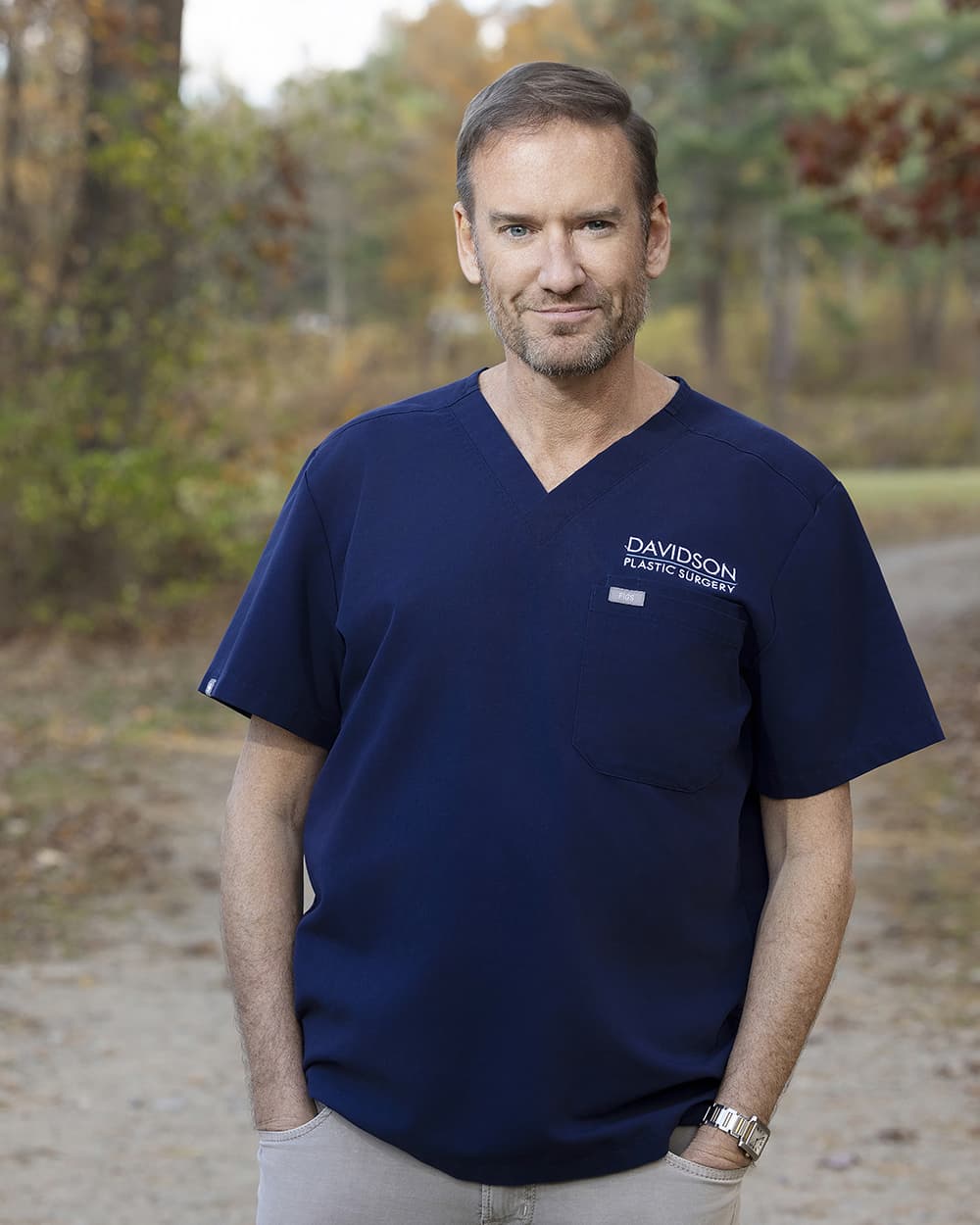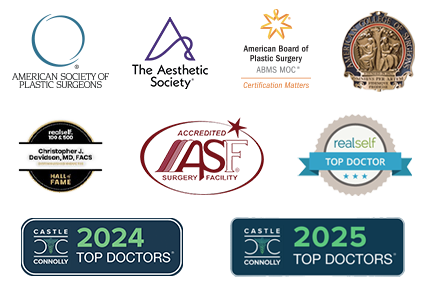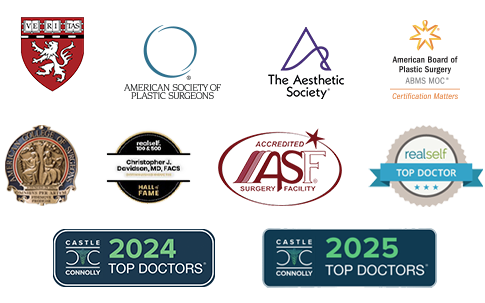Christopher J. Davidson, MD
Fraser Medical Building
332 Washington Street, Suite 100
Wellesley, MA 02481
Phone: (781) 237-7700
Monday–Friday: 9 a.m.–5 p.m.
The earlobes are one of our most easily damaged body parts, and what’s more, the damage is also in one of the most visible places. Earlobe damage can be caused by trauma or, more often, by piercings gone awry. It’s quite common for heavy earrings to lead to stretched, elongated, or even split earlobes. Fortunately, earlobe damage is easily fixed. With just a brief earlobe repair procedure, patients from Boston, Wellesley, Natick, Framingham, and throughout the Greater Boston, Massachusetts, western suburbs as well as Providence, RI; southern New Hampshire; and southern Vermont can have normal-looking earlobes and even return to wearing earrings again.
Find out just how easy earlobe repair in Boston can be. Contact Dr. Christopher J. Davidson’s by calling (781) 237-7700 or request a consultation.
Before going through the procedure, you’ll have a consultation with Dr. Davidson. He will assess the damage and discuss the procedure with you. Once you’ve decided on a course of action, you’ll also discuss precautions you can take before the surgery is done.
 Earlobe repair is a fairly minor procedure, so it is generally done under a local anesthetic. While the procedure may vary slightly based on the nature of the damage, in most cases Dr. Davidson will remove the scarred edges around the split and suture the new raw edges together so that they can heal into a whole earlobe again. The entire procedure typically takes less than an hour.
Earlobe repair is a fairly minor procedure, so it is generally done under a local anesthetic. While the procedure may vary slightly based on the nature of the damage, in most cases Dr. Davidson will remove the scarred edges around the split and suture the new raw edges together so that they can heal into a whole earlobe again. The entire procedure typically takes less than an hour.
After the earlobe repair, you’ll experience swelling and bruising for less than two weeks. You’ll need to avoid pressure, including phone usage, on the affected ear for at least a week, and you should sleep with your head elevated. Try to avoid sun exposure for several months to avoid pigmentation of the scar. Most patients can get their ears pierced again in two months.
Earlobe repair is very safe, but all surgeries carry the standard risks of bleeding, infection, hematoma, and reaction to anesthesia. There is also a small chance of excessive scarring, but in most cases the scar will fade very well. If you are concerned about any of these risks, please take the time to discuss them with Dr. Davidson during your consultation.


Dr. Christopher Davidson's patient first approach to aesthetic medicine means that every decision he makes is aimed at achieving the optimal outcome for the patient. This is apparent, not just in the beautiful, natural-looking results he creates, but also in the compassionate care he delivers through every step of the process.


A. Many patients regret stretching their earlobes with gauged piercings. Fortunately, repairing the damage is a fairly easy procedure. Since the exact techniques used will vary based on the extent of the damage and the amount of scar tissue, Dr. Davidson will assess the level of correction needed at your earlobe repair consultation.
A. Yes. In most cases, the earlobe will need to be cut to the rim in order to restore a natural shape. From that point, the repair technique is exactly the same as fixing a true split in the earlobe.
A. You can try, but be aware that it is much more likely to develop another keloid scar if you’ve already had one in the same place. Steroid injections at the time of piercing can reduce the likelihood of recurrence, but you should be prepared for the possibility of developing a new scar.
A. Scars typically fade significantly and will be nearly invisible within the first year after surgery. Avoiding sun exposure by using sunscreen or wearing hats can help reduce your risk of having a visible scar.
A. Yes, this is generally a very easy fix. A small incision will be made where your current hole is. It will then be closed with a suture, which will seal up the hole at the same time. You will probably be able to get the new piercing as soon as the repair is completely healed.
Find out just how easy earlobe repair in Boston can be. Contact Dr. Christopher J. Davidson’s by calling (781) 237-7700 or request a consultation.